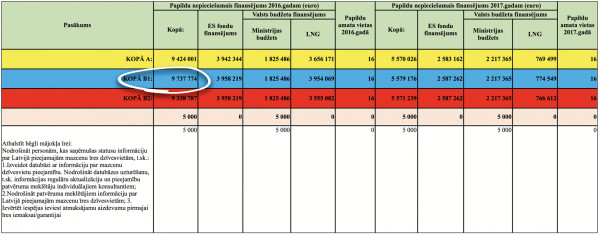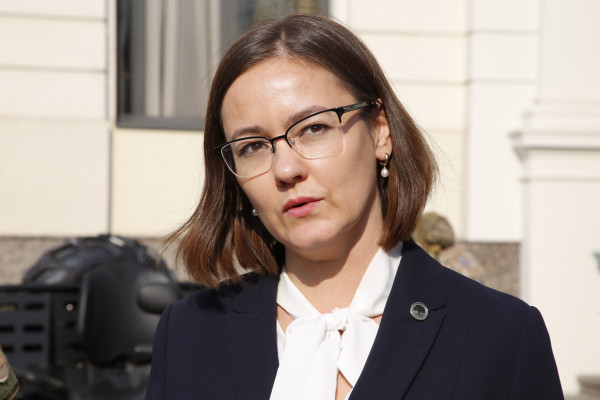Ukrainians in Latvia should use their feet to walk away, not to stand
There is good reason to promote the idea of Riga City Council Deputy Speaker Linda Ozola that Latvian government decisions do not encourage refugees from Ukraine to think about "standing on their own feet", as one might describe the search for stable work or work in Latvia in general.
The government of Krišjānis Kariņš is making Latvia a pass-through location for refugees from Ukraine in the same way that Latvia was for the previous publicly known portion of refugees from Syria and some African countries. The current ruling coalition is thus trying to repeat one or better two of the tricks of the previous ruling coalition before the 13th Saeima elections, in which these tricks really played a major role in the old ruling coalition basically staying in power as the current ruling coalition.
As is well known, during the 12th Saeima, the government of Laimdota Straujuma allegedly acceded to the demand of the European Union authorities to take in at least almost a thousand refugees who had managed to cross the southern borders of EU Member States. The European Commission undertook to pay money to Latvia to accommodate the refugees. The government's "Action Plan for the Resettlement and Reception of Persons in Need of International Protection in Latvia", dated December 2, 2015, is still floating in the depths of the internet, with an annex - an estimate of €9.7 million for the reception of refugees (pictured).

This money was received and used in such a way that, before the 13th Saeima elections, the coalition party could report how there were no "blacks" (not literally, as Syrians can look whiter than some native Latvians) in Latvia. The Latvian public cheered this result and allowed the old coalition to inherit power despite the huge number of protest votes that were given to several parties that formed the extra-parliamentary opposition until the 13th Saeima.
Alongside the main trick of driving refugees out of Latvia, the trick of collecting and distributing EU money was played. The annex to the aforementioned government regulations contains an estimate according to which the Latvian Border Guard was promised exactly €1,639,842 for the transport of 531 persons from Riga Airport to the refugee asylum facilities in Mucenieki in the Pierīga region. After that, however, a quarrel broke out between the authorities, who managed to divert some of the money from the border guards, but the redistribution of the money did not mean that not a single euro was spent on the reception of refugees. The refugees received perhaps €100,000 for their meals in Mucenieki, for bus tickets to Germany and for the salaries of the people who showed them the way from Mucenieki to the Riga bus station.
Now the Kariņš government is going to great lengths to put the refugee management back on the old track. The difference between then and now was determined by public attitudes towards refugees from Ukraine, which are diametrically opposed to those towards refugees from Asia or Africa. However deeply divided Latvian and non-Latvian or Russian-speaking communities are, both believed that refugees should be welcomed and cared for, even if for completely opposite reasons. As before, Latvia also needs to report to the European Commission on the reception of refugees. It was therefore promised verbally and even written into a special law, but it was carried out in such a way that the Ukrainians understood that it was better for them not to stay in Latvia than to stay.
In reality, of course, many more people from Ukraine will remain in Latvia than from the 2015/2016 refugees, of whom there are now one or none in Latvia, but no noticeable increase in the number of people living in Latvia, including people of working age and their children, is expected. Neatkarīgā pointed this out already on July 1, when the government's "Regulations on the provision of primary support to Ukrainian civilians", adopted on June 8, came into force, which in practice meant the eviction of several thousand Ukrainian refugees from their assigned accommodation to the streets.

The statement by Ozola in the LETA archives is dated the following day, July 2. She was referring to the fact that the government had placed the obligation on municipalities to inform Ukrainian refugees that they had to vacate their municipal accommodation the following day. She said that the government was being unfair to the municipalities. It would be fair for a government representative to announce the decision loud enough for the refugees to know. The municipal staff would then be left with the technical task of informing the refugees of the procedures for implementing the government's decision in the municipality and in the refugee accommodation.
Complying with Ozola's request would mean that Kariņš, who does not want to do this, would have to say something about the refugees. That is why he has gone on a week-long pre-election trip to the USA, to avoid talking not only about refugees but also about the doubling of natural gas tariffs, as from July 1. Kariņš hopes to return to Latvia only when the bad news here is old news that is unnecessary to talk about.
However, no Ukrainian refugees have yet been publicly seen sheltering under bridges, in bushes, etc. In the case of Riga, the municipality has stopped registering newly arrived refugees and is sending them to the countryside, where the possibilities for accommodating refugees have supposedly not yet been exhausted. This is how Gulbene topped the Latvian news on July 1, where six refugees have been sent while more than 50 have refused to leave Riga. The news was framed in such a way as to give the impression that Ukrainian refugees are no different from “black” refugees: they came here for benefits, they are asking us for who knows what, we must get rid of them.
Neatkarīgā investigated the mechanism of refugee vacancies in Gulbene municipality. Firstly, the premises of a closed boarding school with 200 places in Ranka are still suitable for accommodating people. Secondly, the premises have remained unfilled because the refugees taken there do not stay for long. "Today again 30 people left, but others will be brought here instead," The municipality told Neatkarīgā. Latvia's small towns, even with their beautiful scenery, look so hopeless that people realize they have to get out of Latvia while the weather is still warm and before all their savings of money or valuables run out.
*****
Be the first to read interesting news from Latvia and the world by joining our Telegram and Signal channels.
